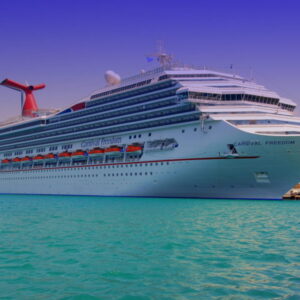Ozzy Osbourne, a founding father of British heavy metal, a latter-day solo star and a new-millennium reality TV luminary, died Tuesday after a yearslong struggle with Parkinson’s disease. He was 76.
Osbourne’s death was confirmed by the BBC.
He had performed just two weeks ago at what was billed as Black Sabbath’s last concert, a festival titled “Back to the Beginning,” in his and the band’s hometown of Birmingham, England, that amounted to a massive tribute to the legendary band, including from such legendary spiritual offspring as Metallica, Guns N’ Roses, Slayer, Tool, Pantera, Alice in Chains and more.
A statement from his family reads: “It is with more sadness than mere words can convey that we have to report that our beloved Ozzy Osbourne has passed away this morning. He was with his family and surrounded by love. We ask everyone to respect our family privacy at this time.”
In January 2020, following two years of escalating health problems, Osbourne announced that he had been diagnosed with Parkinson’s disease. In February 2023, he issued a statement saying that he was retiring from touring, citing spinal injuries he had sustained in a 2018 accident.
He said, “[I]n all good conscience, I have now come to the realization that I’m not physically capable of doing my upcoming European/U.K. tour dates, as I know I couldn’t deal with the travel required. Believe me when I say that the thought of disappointing my fans really FUCKS ME UP, more than you will ever know.
“Never would I have imagined that my touring days would have ended this way.”
From 1969-79, Osbourne was the head-banging front man for the Birmingham, England-based Black Sabbath, which codified the bottom-heavy, churning sound and lyrical demonology that would course through dozens of metal bands to come. Though the group’s history was a chaotic one characterized by monumental substance abuse and tumultuous in-fighting, its early albums survive as classics of the genre.
On the occasion of Black Sabbath’s 2006 induction into the Rock and Roll Hall of Fame, critic Deborah Frost wrote, “Black Sabbath simply oozed upon us, unfestooned by any pretense of art, peace, love, understanding, or mushroom embroidery, and immediately defined heavy metal.”
Fired from Sabbath in 1979, Osbourne launched a solo career of his own that, in commercial terms, surpassed the success of his former band. His groups launched Zakk Wylde and the late Randy Rhoads as metal guitar stars.
His popularity among metal fans was so immense that his wife and manager Sharon Osbourne built a touring festival, Ozzfest, around him; it became one of the biggest box office attractions of the ‘90s and attracted a glittering lineup of support acts, helping to launch the careers of many.
Osbourne garnered additional fame early in the new millennium as the addled paterfamilias of “The Osbournes,” an MTV reality series that focused its lens on the rock star’s home life.





